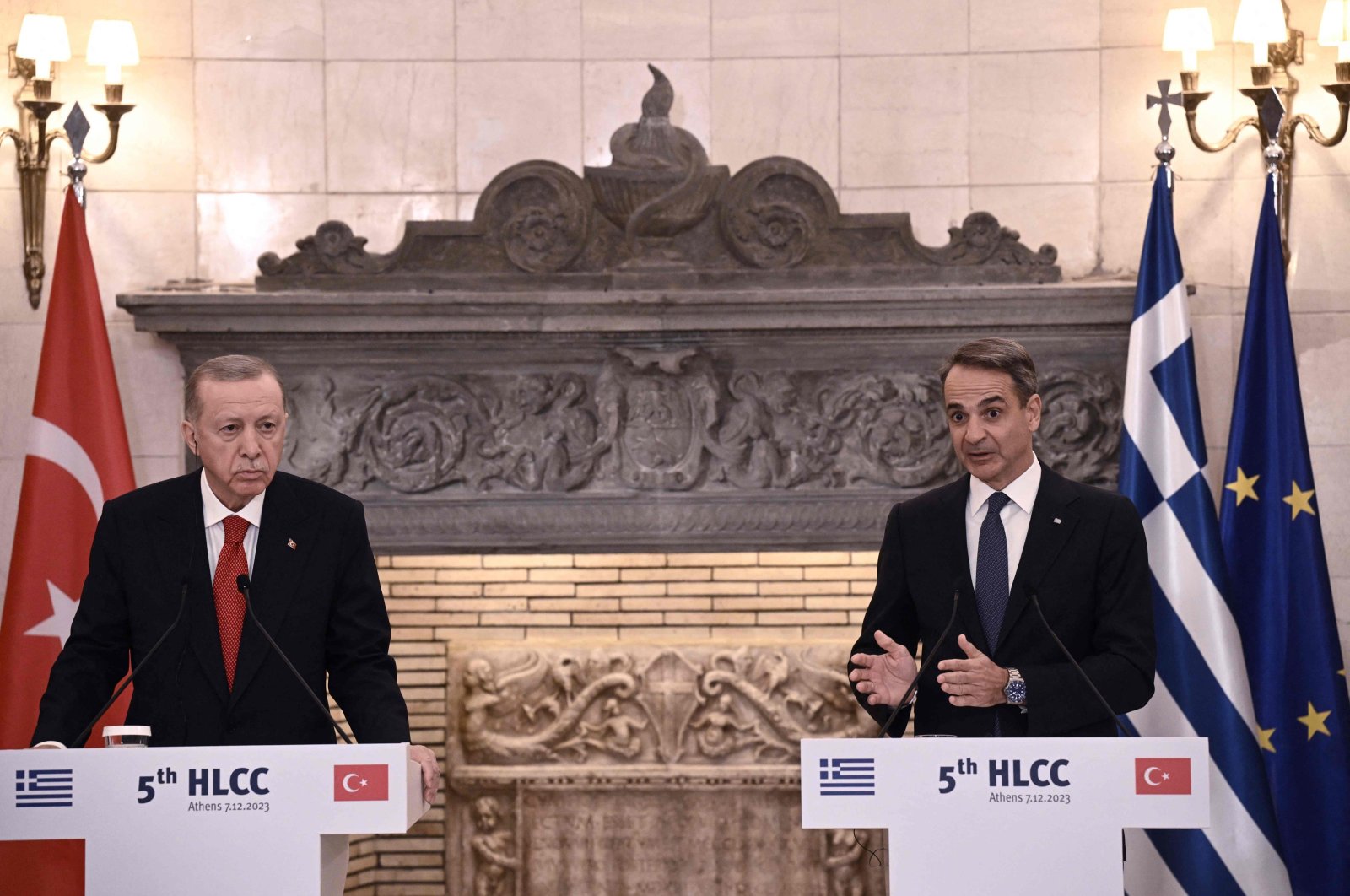
Aegean rivals Türkiye and Greece are sticking to the recent calm in their relations despite unchanging positions on their longstanding issues, according to Greek Foreign Minister George Gerapetritis.
"We will continue to have good cooperation on immigration, good cooperation in entrepreneurship, good cooperation so that actions such as the one currently taking place with the on-site visa on ten islands for Turkish visitors are introduced, which have revitalized the concerned local economies," Gerapetritis told broadcaster SKAI TV in an interview on Thursday.
However, Gerapetritis emphasized that both countries remain committed to their positions on major issues, including the delimitation of maritime borders, and it will take time and effort to resolve them finally.
"Neither Greece nor Türkiye are going to deviate from their fundamental positions. We would be completely naive and it would be excessive to assume that, at some point, they will abandon their positions. But what we are trying to do is, on the one hand, keep a level of calmness in our relations, and on the other hand, gradually touch on issues of great difficulty to have long-lasting peace in the region," he said.
"A long-lasting, sustainable peace cannot be achieved with Türkiye unless the major underlying issue is resolved; the one issue that can be brought before international jurisdiction: the delimitation of the Exclusive Economic Zone and continental shelf," he added.
Turning to the latest developments in the Middle East, including the assassinations of Hamas political chief Ismail Haniyeh in the Iranian capital Tehran and top Hezbollah commander Fuad Shukr in the Lebanese capital Beirut, Gerapetritis said the region has entered the most challenging phase of the post-Oct. 7 period.
"We will have to see whether the actions that have been taken create ‘domino' conditions for the wider region. Let's see if the three components – Hezbollah, the Houthis and Hamas – will coordinate strikes, which will be either inside or outside Israel. And what will Israel's reaction be? What must be avoided in any way is a further expansion, which would create an endless tug-of-war.
Gerapetritis’ remarks echo those of President Recep Tayyip Erdoğan, who recently said Türkiye "only looks to advance and increase its friendships, especially with its neighbors.”
History of problems
After a long period of tensions marked by disputes over irregular migration, the Cyprus dispute, energy exploration and territorial sovereignty in the Aegean, Türkiye and Greece have been taking confidence-building steps toward a fragile normalization of their relations, which moved into a new chapter with Erdoğan’s landmark visit to Athens in December. Erdoğan later received Mitsotakis in Türkiye.
Visa facilitation for Turkish citizens for 10 Greek islands in the northern Aegean for up to seven days, as well as a friendship declaration and an agreement for decreasing the flow of irregular migration to Greece, was signed during this visit.
Officials on both sides have since expressed commitment to maintaining the positive climate, but the issues are longstanding and deep-rooted, and neither side expects the process to be without turbulence, particularly in the Aegean, where Turkish and Greek jets often scuffled until very recently.
Earlier in January, both Ankara and Athens reached respective deals with Washington for fighter jets, raising concerns of fresh skirmishes in the region that have so far remained unmet.
Ankara warns its neighbor against entering an arms race with Türkiye, particularly on building a military presence on the disputed Aegean islands since the 1960s, in violation of postwar treaties.
Greece's purchase of F-35 fighter jets from the U.S. and the upping of defense budgets are meant to counter the protection of Turkish interests in the Eastern Mediterranean. Greece says it needs to defend the islands against a potential attack from Türkiye, but Turkish officials said continued militarization of the islands could lead to Ankara questioning their ownership.
After his meeting with Mitsotakis in Ankara last May, Erdoğan stated that there were no "unsolvable” problems between the two countries.
More recently, Greece’s Health Minister Adonis Georgiadis drew Türkiye’s ire by suggesting Athens might strike Ankara "one night,” repeating Erdoğan’s "all of a sudden, one-night” remark. Erdoğan employed it in response to Greece’s repeated violations of Turkish territorial waters in the Aegean Sea and military shows of force in the past until the sides opened a new leaf in ties.
